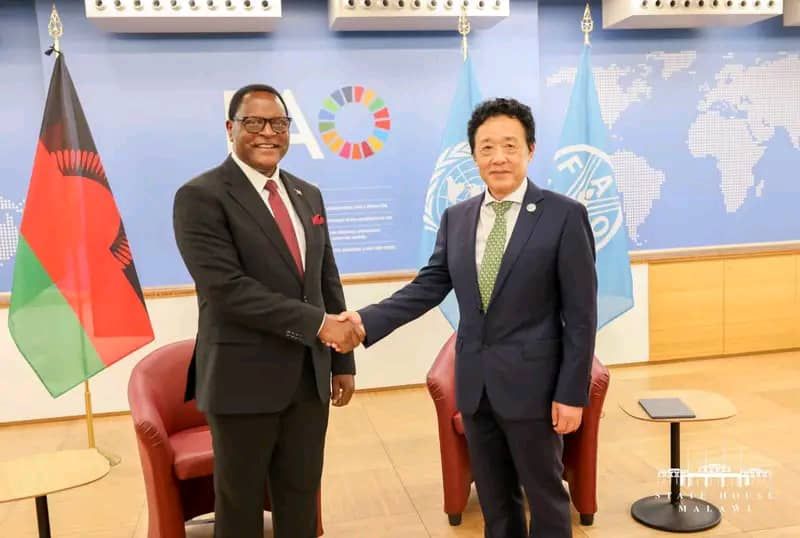By Burnett Munthali
In a recent post on his official Facebook page, President Lazarus Chakwera outlined the ambitious MW2063 vision, a strategic blueprint aimed at guiding Malawi towards sustainable development by the year 2063. The framework, as described by President Chakwera, is built on three foundational pillars: Agricultural Productivity & Commercialisation, Industrialisation, and Urbanisation.
Central to the MW2063 vision is the Agriculture, Mining & Tourism (ATM) strategy, which President Chakwera discussed in a significant meeting with Dr. QU Dongyu, the Director-General of the Food & Agriculture Organisation (FAO), held yesterday in Rome. This engagement highlights Malawi’s commitment to transforming its agricultural sector through a strategic partnership with the FAO.

During the meeting, President Chakwera emphasized the need for agricultural commercialisation and mechanisation as pivotal to achieving food security. He underscored the importance of transitioning from smallholder subsistence farming to climate-smart agricultural practices capable of withstanding annual challenges such as floods and droughts. The President’s appeal for FAO’s technical assistance in these areas aligns with the broader goals of the MW2063 strategy, aiming to bolster agricultural resilience and productivity.
Dr. QU Dongyu responded positively to Malawi’s aspirations, reaffirming the FAO’s commitment to supporting the country’s agricultural transformation. The FAO Director-General pledged support for integrating technology and innovation in agriculture, prioritizing the empowerment of women and youth as well as fostering modernisation in farming practices.
President Chakwera’s proactive stance underscores a broader commitment to leveraging international partnerships for national development. The emphasis on modernising agriculture as a catalyst for food security, poverty reduction, and economic growth reflects a strategic vision designed to propel Malawi towards its long-term developmental goals.
As Malawi continues to advance towards its 2063 objectives, the engagement with the FAO marks a crucial step in aligning global expertise with national strategies, aiming to foster a resilient and prosperous agricultural sector.


